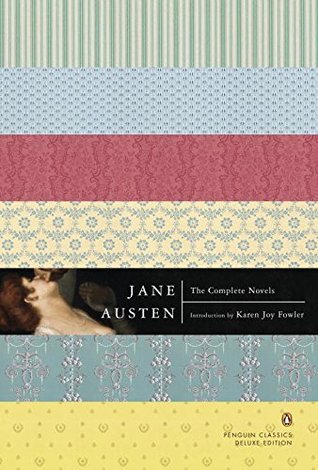My aunt Brenda gave me this edition in 2007, and it’s the copy I use for all my annotations, so I can flip back and forth between books easily. The introduction by Karen Joy Fowler notes how Austen left the politics out of her work, showing just how easy it is to miss how thoroughly her work is steeped in politics, even as Fowler also notes that Hollywood crops out the most interesting bits, the parts that undercut the cozy reading, and lumps herself in “we purists”:
So Willoughby’s final speech has been eliminated from Ang Lee’s Sense and Sensibility, the entire troubling personality of protagonist Fanny Price from Patricia Rozema’s Mansfield Park. The first thing Hollywood does is fix Austen’s unsatisfying men, which in turn makes happy endings out of her more interesting as-happy-as-could-be-managed endings. We purists must content ourselves with Austen’s dialogue, so impossible to improve on that much of it makes the transition to the screen untouched.
In fact, Fowler asks, “what writer of romances has ever been as impervious to the attractions of the Byronic male as Austen?” and notes the unromantic attention to economics, so at least we’re on the same page with that; it’s one small step further to see the shades of abolition, class politics, religious satire, and revolutionary war that lurks between the lines.
The Everyman’s Library editions are the books I first read, back in the day. You can see my full commentaries there. But for reasons both practical and sentimental, I treasure this edition too.
